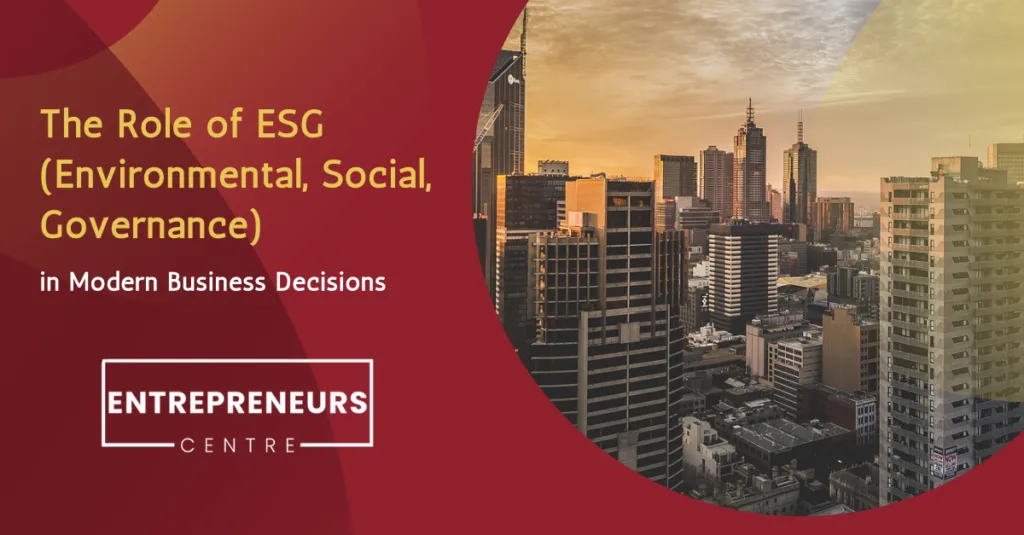The world is changing rapidly. Customers are smarter, investors are pickier, and businesses are under more pressure than ever. So, what sets a successful company apart in this modern landscape? ESG – Environmental, Social, and Governance.
What Is ESG, and Why Does It Matter?
ESG is a framework that evaluates a company’s impact on the environment, its social responsibility, and how well it is governed. In simpler terms, it’s about being green, fair, and ethical. The days are gone when profit was the only goal. Today, companies are judged on more than just their financial performance.
In a 2022 study by PwC, 88% of institutional investors said they would drop a company with weak ESG practices. That’s a wake-up call for businesses stuck in the old ways of thinking.
The Environmental Factor: Going Green or Going Home
Consumers care about the planet. A Nielsen survey found that 73% of global consumers are willing to change their consumption habits to reduce environmental impact.
For businesses, this means taking sustainability seriously. Actions like reducing carbon emissions, using renewable energy, and cutting waste aren’t just good for the planet—they’re also good for business. For instance, IKEA pledged to become climate-positive by 2030, which not only boosts its reputation but also reduces costs in the long run.
Social Responsibility: People Over Profits
Do your employees feel valued? Does your company give back to the community? These questions are at the heart of the social pillar of ESG.
Take Starbucks as an example. The company offers education benefits, promotes diversity, and invests in fair trade coffee. These efforts have turned Starbucks into more than just a coffee chain; it’s a brand people trust and admire.
And guess what? Companies with strong social responsibility often outperform their peers. According to a Harvard Business Review study, firms with higher employee satisfaction achieve better stock performance over time.
Governance: Doing the Right Thing
No one likes a shady business. Governance ensures transparency, ethical practices, and accountability. Think of it as the backbone of trust.
A lack of good governance can lead to scandals—remember Enron? On the flip side, companies with strong governance practices attract more investors and maintain long-term success. Microsoft’s governance policies, for instance, have made it one of the most trusted tech companies globally.
Why ESG Is a Business Must-Have
Let’s face it: ignoring ESG is like ignoring a leaky roof. It might not seem urgent now, but it will cost you later.
- Attracting Investors: According to Morningstar, ESG funds saw $649 billion in net inflows globally in 2021. Investors are putting their money where their values are.
- Customer Loyalty: Millennials and Gen Z are vocal about supporting ethical brands. Show them you care, and they’ll stick with you.
- Cost Savings: Sustainable practices often lead to reduced operational costs. Think energy-efficient buildings or waste reduction programs.
- Regulatory Compliance: Governments worldwide are rolling out ESG-related regulations. Staying ahead ensures you avoid hefty fines.
Challenges in Adopting ESG
Let’s not sugarcoat it. ESG isn’t easy.
- Cost: Implementing green technologies or diversity programs can be expensive upfront.
- Measurement: Tracking ESG performance can feel like nailing jelly to a wall. Metrics vary across industries.
- Greenwashing: Pretending to be eco-friendly can backfire spectacularly when exposed.
How to Get Started with ESG
Feeling distracted? Start small but think big. Here’s how:
- Assess Your Current Practices: Identify areas where you’re lacking—be it energy usage, workplace diversity, or governance transparency.
- Set Clear Goals: Make your ESG goals measurable and time-bound. For example, aim to reduce carbon emissions by 20% in two years.
- Engage Stakeholders: Include employees, customers, and investors in your ESG journey. Transparency builds trust.
- Report Progress: Use frameworks like GRI or SASB to share your progress. It’s not bragging if it’s true.
The Future of ESG in Business
ESG isn’t just a buzzword. It’s the future of business. As climate change accelerates, social issues take center stage, and governance lapses make headlines, companies can’t afford to ignore ESG.
The benefits are clear. Improved reputation, increased profitability, and stronger customer loyalty are just the beginning. Companies that prioritize ESG today will be the leaders of tomorrow.
So, the big question is: Is your business ready to adopt ESG? Because in this new world, doing good isn’t just an option—it’s a necessity.


